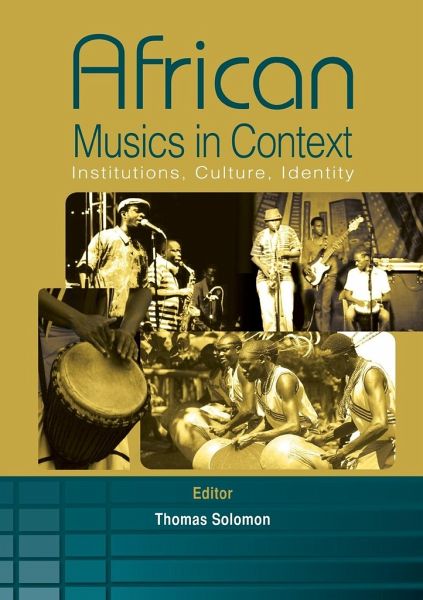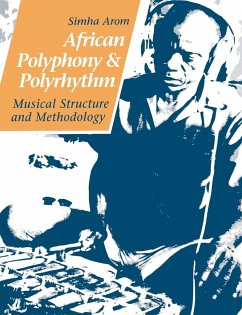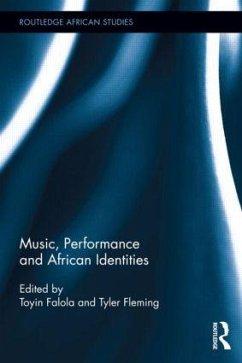
African Musics in Context. Institutions, Culture, Identity
Versandkostenfrei!
Versandfertig in 1-2 Wochen
53,99 €
inkl. MwSt.

PAYBACK Punkte
27 °P sammeln!
Ethnomusicology deals with the study of the music of the world. The field is interdisciplinary, and ethnomusicologists draw on theory and method from folklore, cultural anthropology, historical musicology, literature, cultural studies and media studies, among other disciplines. So when ethnomusicologists met at Makerere University's symposium on ethnomusicology in October 2011, the issues dealt with spanned a wide spectrum of concerns which can be grouped under three major categories: Institutions, culture and identity. African Musics in Context discusses the place of performing arts in Uganda...
Ethnomusicology deals with the study of the music of the world. The field is interdisciplinary, and ethnomusicologists draw on theory and method from folklore, cultural anthropology, historical musicology, literature, cultural studies and media studies, among other disciplines. So when ethnomusicologists met at Makerere University's symposium on ethnomusicology in October 2011, the issues dealt with spanned a wide spectrum of concerns which can be grouped under three major categories: Institutions, culture and identity. African Musics in Context discusses the place of performing arts in Ugandan society, archiving music and music sources, performing archival music, performing health and religious issues in music, music and identity in East Africa as well music in motion, which tackles how identity shifts when people move from one place to another. All these are key aspects of our day-to-day lives, and they are the themes that colour the music we listen to. This book follows up on and extends work in an earlier volume (Nannyonga- Tamusuza and Solomon 2012) which included papers from the first symposium in the series. While this book focuses primarily on music and music research in Uganda, the chapters by the contributors from Tanzania, South Africa and Norway demonstrate the importance of scholarly and professional networks that connect the different countries of the African continent with each other and with the larger international scholarly community. If the published proceedings from the first symposium mentioned above represented a first in the history of ethnomusicological publishing in Uganda, this second book in the series shows that professionalised ethnomusicology in Uganda continues to gain ground and make contributions to music research in Uganda, Africa, and the global ethnomusicological community. The chapters collected here show that ethnomusicology in Uganda has a healthy institutional basis and promises to continue to make contributions that are relevant locally, regionally, and internationally.












